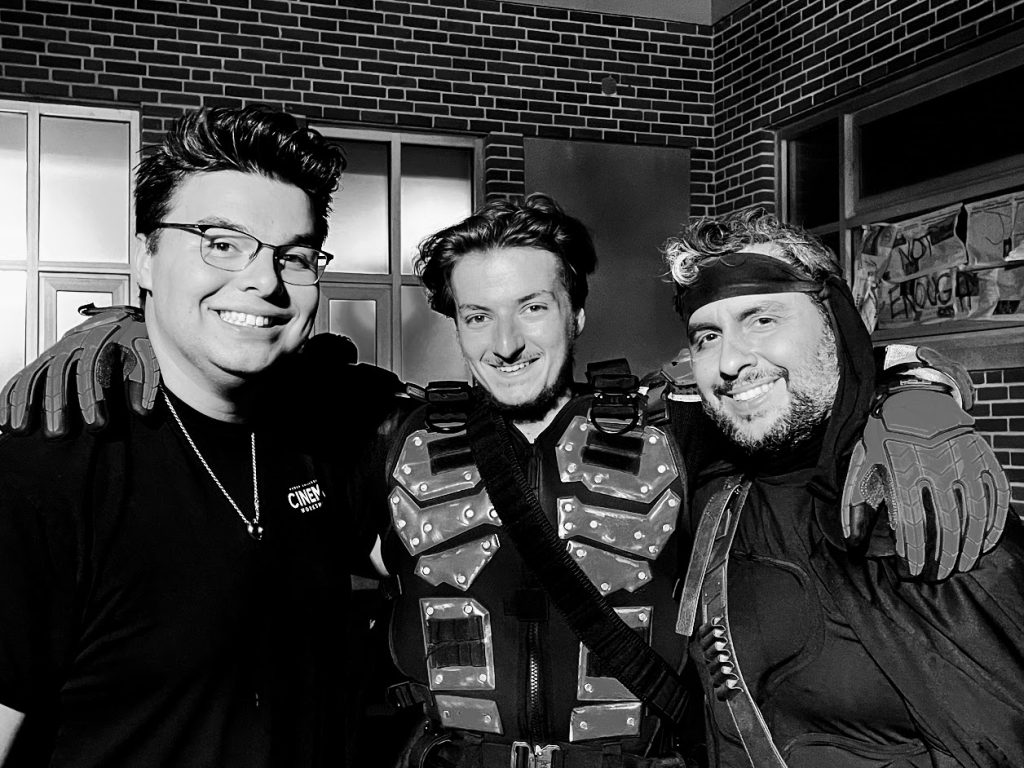
-Who is AJ Bucci?
I’m AJ Bucci, a storyteller, filmmaker, and entrepreneur from New Jersey. I was raised on Superman, Star Wars, comic books, and action figures. I’m the kind of guy who still watches movies on VHS, plays Super Nintendo, and gathers with my friends for long nights of HeroQuest. I’m obsessed with the mythological
power of story, especially the kind that mixes nostalgia, emotion, and epic stakes.
I graduated from Rowan University with a B.A. in Radio/Television/Film, with concentrations in production and film studies, and a minor in Creative Writing.
But truthfully, I’ve been making movies since I was four and telling stories since I could speak. I founded AB3 Productions to bring my visions to life and most recently, we completed our first feature film, Phantom and Percepter. What began as a childhood legend passed down from my dad has now become an indie film that’s been honored at multiple festivals. I’m beyond humbled by the response but more than that, I’m grateful. Grateful that audiences are connecting with something deeply personal, mythic, and handmade. That’s what filmmaking is to me, not just cinema, but legacy.
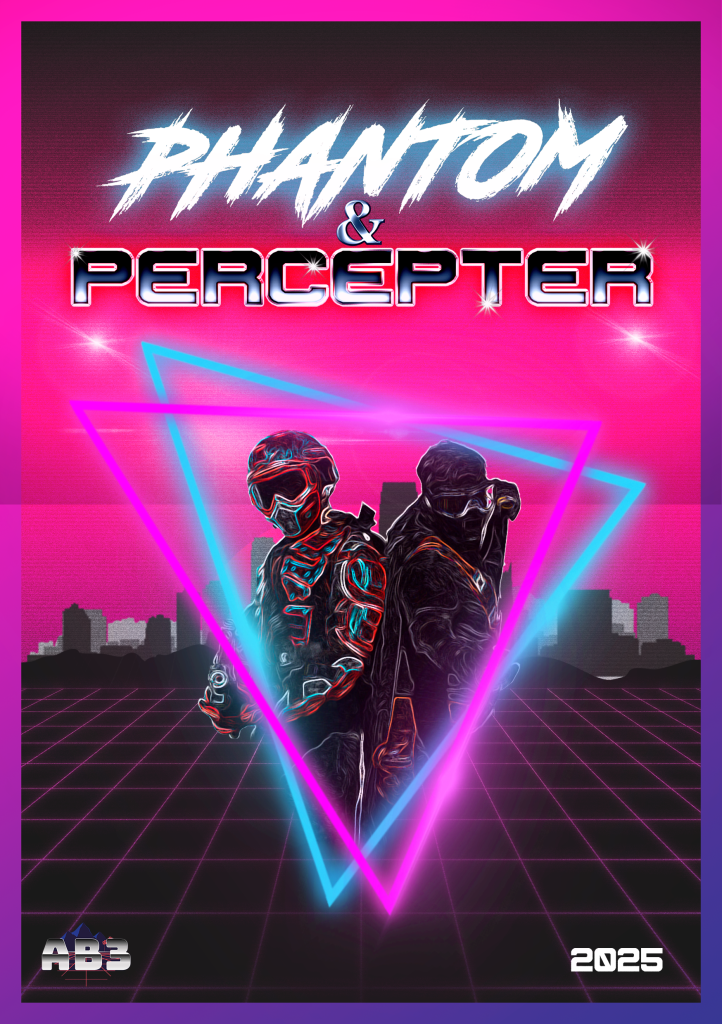
-Do you remember the exact moment you fell in love with cinema?
I can actually remember the exact moment I fell in love with cinema. A bit of context first; in the 90s and early 2000s, my uncle was going to film school and trying to break into the industry. I distinctly remember him and my dad working on a movie when I was four. They were shooting a scene in the basement. I didn’t totally understand what was going on. Why was my uncle holding a camera and filming my dad fake-punching someone?
Why was it so dark? Why did my dad start talking differently when the camera was rolling? I sat on the basement stairs and just watched, totally locked in. And then it happened the moment that changed everything. My uncle Anthony popped the tape out of the camera, loaded it onto the TV, and suddenly there it was. My dad is on screen in a movie. One I had just watched them make. I couldn’t believe what I was seeing. My dad was in a movie. A real movie. Okay, maybe it wasn’t really a movie, just something
fun they were doing but to my four-year-old brain, it was the coolest thing I had ever seen. I didn’t understand how it was any different from anything else I had seen on TV. I was four, what do you want from me? I finally worked up the nerve to ask about it and that’s when everything cracked open. They didn’t just shoot that one scene, they had years of characters, stories, and mythologies they’d built together.That was it. My life changed that day. I know it. How many people can say they knew what they wanted to do with their life at age four? They dug out this old Panasonic VHS camcorder that had to be plugged into the wall and handed me a couple of blank tapes. The first movie I ever made was a Godzilla movie where I set the camera on the floor and smashed action figures together. That was the whole plot. But when we played the tape back on the old CRT and those words popped up handwritten on a piece of notebook paper “An AJ Bucci Film”…Well, the spark was ignited. It’s a high I’ve chased ever since.
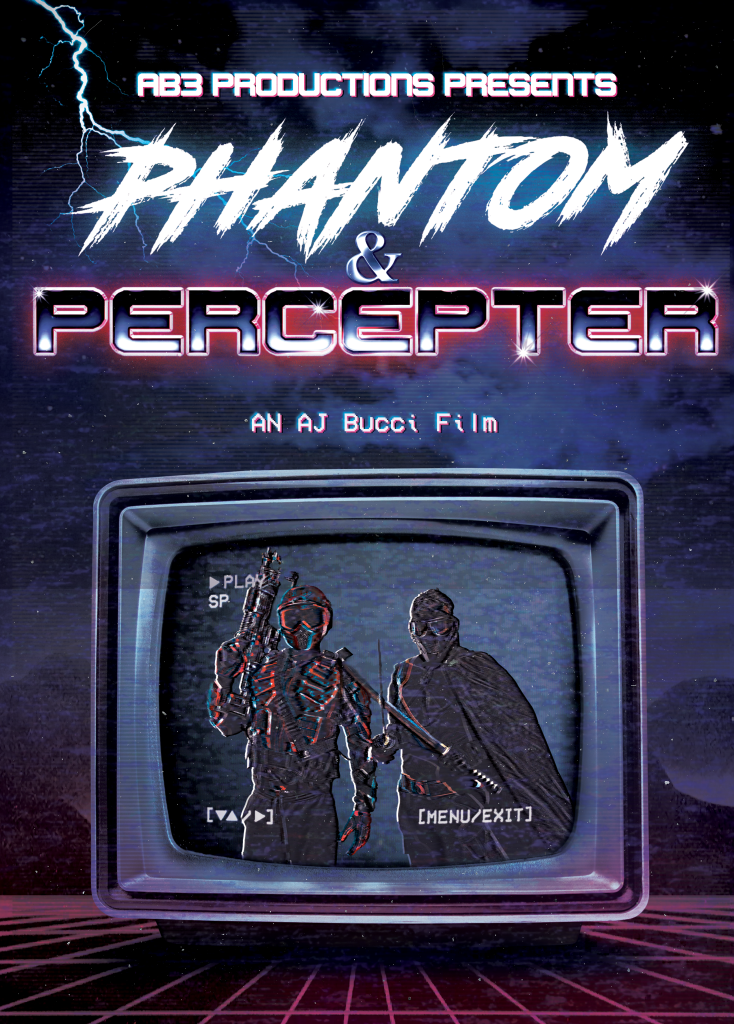
-Tell us about your project “Phantom and Percepter”.
Phantom and Percepter is a story that’s been a lifetime in the making. It’s steeped in family legacy and rooted in my love for mythological storytelling. To really understand what this project means not just to me, but to my dad ;I need to take you back to the 1980s.
My dad, Andrew Bucci, and his best friend, Stefan Squires, grew up in the Marion section of Jersey City. They had that classic North Jersey Italian upbringing, but they also came of age during the golden era of comics, cartoons, and over-the-top action figures. Think Batman ’89, GI Joe, Ninja Turtles, Transformers all that iconic ‘80s magic. Out of that energy and imagination, they created two characters: Phantom, a ninja vigilante, and Percepter, a super soldier from the future. They kitbashed action figures, made comics, and built an entire mythos never thinking it would go anywhere beyond their bedrooms.
But then, flash forward to the 2000s when I’m a kid, and they show me these old toys and drawings. My little brain couldn’t handle it. I thought it was the coolest thing in the world that my dad and his best friend had their own superheroes.
That idea never left me. In film school, I worked on some smaller projects, but one night during a film club meeting, everything changed. Our advisor came in and gave us a much-needed wake-up call. Productions were down, attendance was low, morale was worse. I don’t know what came over me, but all I could think
about was Phantom and Percepter. I pitched it, made a ten-minute student film, and something clicked. The premiere broke attendance records. Film club morale soared. And that little short kind of scrappy, kind of silly sparked something.
Especially Taylor Forte, who played Percepter. He got it. He saw the same world I saw as a kid. He believed in it as much as I did. He pushed me to go all in. And from that day on, we didn’t stop. Just months
after graduation, we began principal photography on Phantom and Percepter: The Feature. We self-funded the whole thing with no investors, no backing, just passion, friendship, and stubborn determination. And the best part? My dad got to play Phantom.
After three years of blood, sweat, and actual tears it’s finally done. It’s ready for the world.
Now, for the story itself: Phantom and Percepter is a mythological superhero film that deconstructs the myth just to rebuild it. Phantom is a washed-up ninja vigilante from the ‘80s jaded, drunk, and long past his prime. On the night he’s killed by his arch-nemesis Warbaron, Percepter, a super soldier from a dystopian future, comes back in time to save him, believing Phantom is the key to saving the world. It’s got the neon-soaked, synth-scored, VHS-warped action of your wildest ‘80s fever dream but beneath all that, the heart of the story is something much deeper. It’s about fathers and sons. About regret and redemption. About the journey from selfishness to selflessness. And most of all, about what it really
means to be a hero. At the emotional core is Phantom’s relationship with Mia, his long-lost love. I won’t spoil anything but the choice Phantom faces because of her is where the soul of the film lives. The movie you’ll see is just a glimpse into a larger world, a superhero universe shaped by both nostalgia and new mythology, where the past and the future are always colliding.
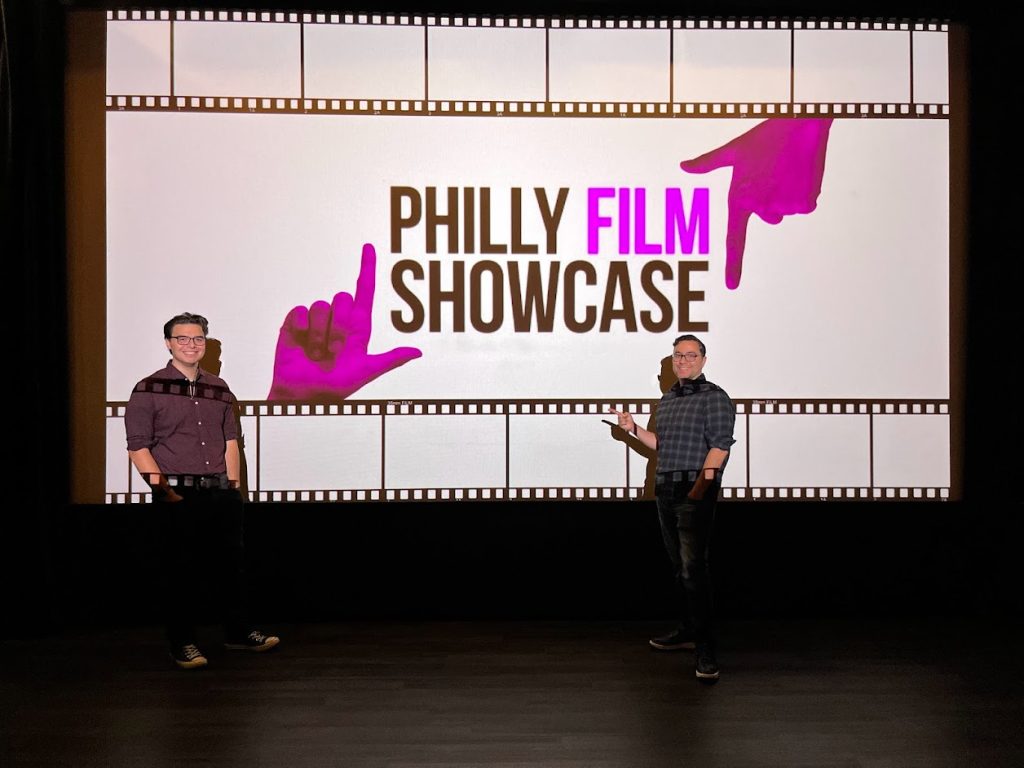
-What director inspires you most?
There are three directors who have inspired me most: Akira Kurosawa, George Lucas, and Zack Snyder. There’s a clear pattern with them, each one influencing the next. They all speak the same mythological language, that visual vernacular where storytelling isn’t just told, it’s shown. I think they each understand something crucial: every story has already been told just not by them. The connection between Kurosawa and Lucas is especially obvious if you watch The Hidden Fortress and A New Hope back to back. George Lucas shaped my childhood and yeah, I know that’s been said a thousand times, but for me, it’s not just about Star Wars or Indiana Jones. It’s about how Lucas redefined what movies could be. He pioneered
blockbusters, invented new ways of making movies, and built ILM from scratch. That kind of bold, myth-making spirit is what I chase. I remember being in college, listening to the Blockbuster podcast that tells the cinematic origin stories of Lucas and Spielberg. There’s this moment where everything’s falling apart, no one believes in Lucas, ILM is barely functional, and he’s on the edge of collapse. Then he hears John Williams’ music for the first time. The Star Wars theme swells and he tears up. I was working a job on campus with my headphones in, and I had to excuse myself to the bathroom because I was crying too. I’d heard that music a thousand times, but in that moment, with all the context and struggle laid bare, I saw myself in George. I’ve been called crazy more than once for trying to pursue film. But in that moment, it was like destiny was whispering: “Keep going. One day it’ll be worth it.” Zack Snyder, to me, is one of the most underrated auteurs working today. I was thirteen when Man of Steel came out, and that movie absolutely blew my mind. The scope, the visuals, the symbolism hit me like a lightning bolt. His love of
mythology, his command of the visual medium, and his unapologetic commitment to tone and scale are a massive influence on how I shoot and direct. I think people often miss the depth in his work because they’re expecting something else. But I see a director who, like Kurosawa and Lucas, believes in visual myth as a language. And that’s the language I want to speak, too.
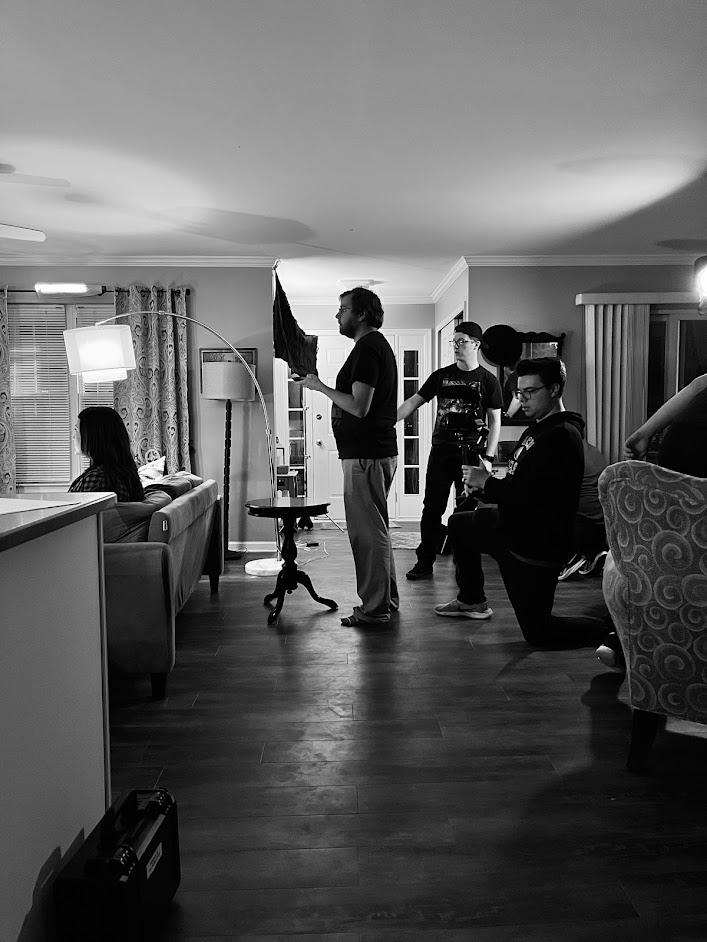
-What do you dislike most about the world and what would you change?
Oh boy. How do you even pick just one thing? I’ll keep it focused on cinema. The thing that bothers me most right now is the way big movies have regressed into these corporate-made, checkbox-assembled products. It feels like so many blockbusters today aren’t made because someone had a story they needed to tell. They’re made because a room full of executives looked at a list of IPs and said “yeah, let’s make this one next.” No passion. No vision. No urgency to say something new. I’m not going to name names if I ever want to work in this industry, but I’m sure you can imagine the examples. It’s not that big movies are
bad, it’s that they could be so much more. Movies should blow your mind. They should make you laugh, make you cry, make you feel something. But too often now, you leave the theater thinking about how good it could have been if they had just focused on the story and let filmmakers actually tell one. What happened with Zack Snyder’s Justice League is a perfect example. Whether you liked the film or not, the way the studio mishandled it and the way fans fought to let an artist share his full vision that’s the core of the problem. That film was meant to mean something. It had heart. It had ideas. It took risks. Thankfully, there are still studios like A24 out there where story and voice still matter. But they’re rare. If I could change anything, I’d make it about one thing; story. Is this story worth telling? What are you trying to say, and should you say it? Not what demographics are we hitting, not how we maximize market share. Who cares?
You should make a movie for one person; yourself. And if other people connect with it, that’s the bonus. That’s the magic. I’m not naive. I get that it’s a business. Budgets matter. People need to make money. I understand all of that. I just wish the storyteller came first. Not the checklist.
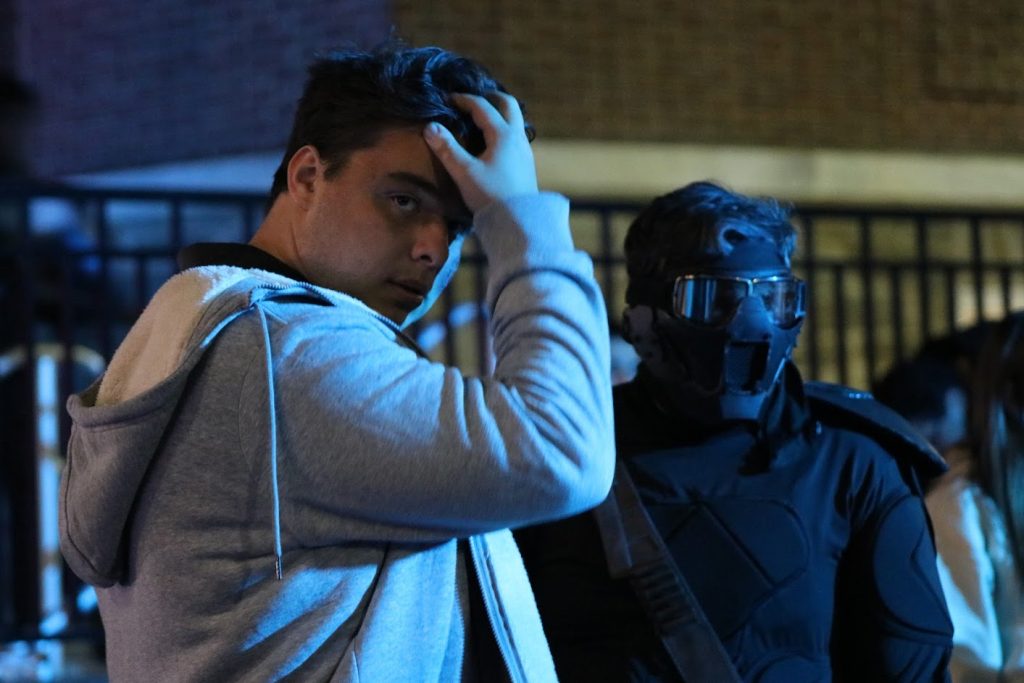
-How do you imagine cinema in the next 100 years?
If you look at the past 100 years of cinema and then try to imagine the next 100, it’s honestly kind of insane. People used to run screaming out of theaters when a train came toward the screen, and now we have CGI explosions so massive and over-the-top that audiences just yawn. Something that would’ve caused a mental breakdown in the 1920s barely gets a head turn today. Predicting the future is tricky.
No one in 1925 could have imagined Star Wars or The Matrix. And yet here we are. But there is something happening right now that I think will shape cinema’s future in a major way. AI. Everyone’s got an opinion on it. Some people are relying on it too much. Others think it’s the beginning of the end. I think the truth is somewhere in the middle. AI is already changing how we make and view content. You’ve got AI-generated videos of people cutting glass fruit that are pulling in more views than movie trailers. It’s fast, it’s weird, and it’s happening whether we like it or not. Personally, I think AI is an incredible tool. It can help with editing, idea generation, maybe even workflows we haven’t dreamed up yet.
But using it to fully replace artists? That’s where the line is. Writing is an art. Drawing is an art. These things take time and come from people. I love silly AI art as much as the next guy, but it doesn’t replace the feeling of seeing something handcrafted by another human being. It’s man-made, and that matters. Every generation panics when new tech arrives. We saw it when we switched from practical effects to CGI, from film to digital, from horses to cars. AI will definitely change everything, and yeah, we need to be careful. But if we treat it like what it is; a tool, not a replacement it could push cinema into incredible new places.
What we can’t lose is the human element. The soul. Movies are stories, and storytelling is one of the oldest things we do as people. That spark should never be handed over entirely to a machine. I’m hopeful, though. I think most people who get into filmmaking do it because they need to tell stories. I don’t think that gets replaced. In a perfect world, AI helps us tell stories better. It doesn’t tell them
for us. That being said, who knows what movies will look like in 2125? Maybe people will be watching them through the chips in their brains. Hopefully they still get popcorn.
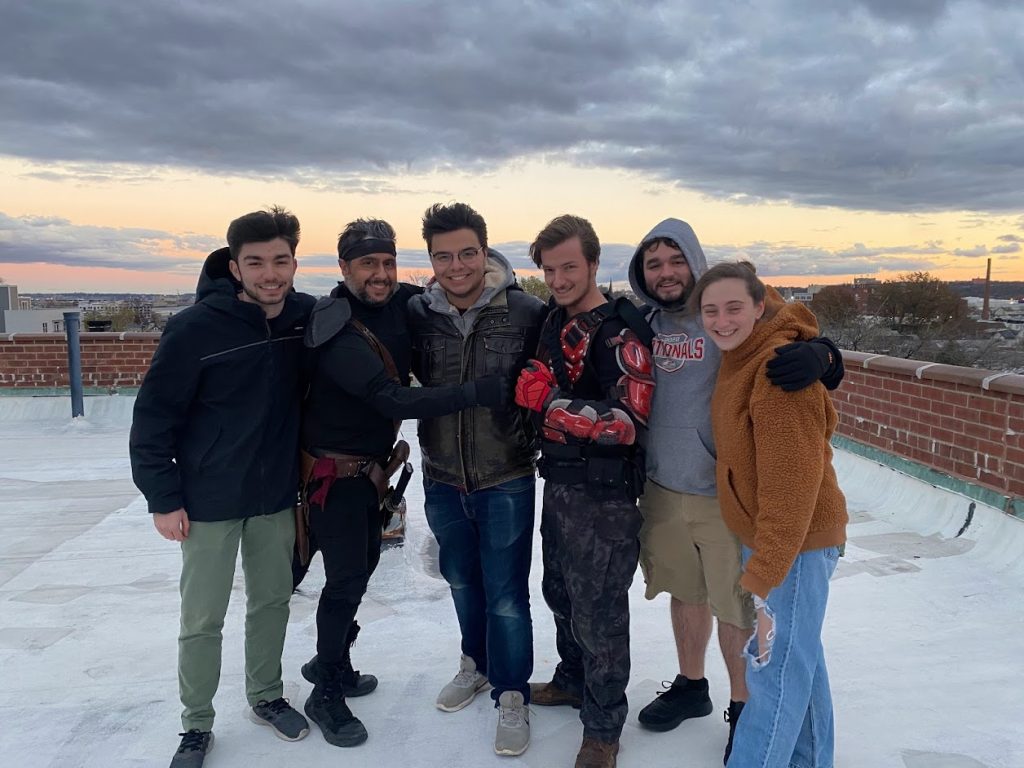
-What is your impression of WILD FILMMAKER?
I’m blown away by Wild Filmmaker. It’s such a unique platform, a true space for cinema appreciation, where real stories and real voices are given the spotlight. For anyone who calls themselves a cinephile or just loves the world of film, this is a must. I’m truly honored to share my story here. It’s both humbling and incredibly exciting to be part of something that values passion, originality, and the heart of filmmaking.

